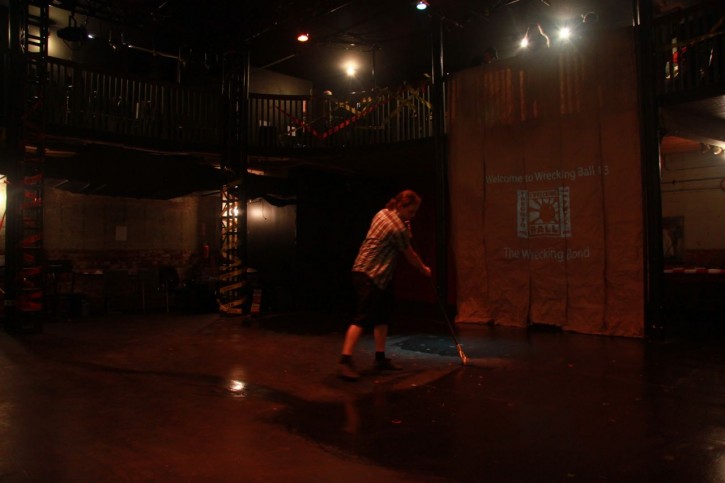About The Wrecking Ball
Established in 2004 by director Ross Manson and playwright Jason Sherman, the Wrecking Ball was created to prove that Canadian political theatre is viable. This mandate has led it to be curated by invitation only, showcasing the work of established playwrights. For professionally produced writers, the Wrecking Ball is an opportunity to do something new and difficult.
They are governed by two rules:
1) That the work should be ripped straight from the current headlines.
2) It should only be rehearsed the week before the performance.
As the birthplace of new plays by Hannah Moscovitch, Michael Healey, Roland Schimmelpfennig, Erin Shields, Judith Thompson, Colleen Wagner, David Yee, Bea Pizano, Tara Beagan, and Sky Gilbert to name a few, there is no there event like it challenging Canadian theatre artists to respond to and address the vox populi.
On the occasion of the previous two Federal elections The Wrecking Ball went National; with ‘Wrecking Balls’ hosted by theatre artists in most major cities across the country. In both 2008 and 2011 these pan-Canadian dramatic responses to our politics garnered widespread national media attention. The Wrecking Ball is no longer a Toronto phenomenon, but an autonomous theatrical movement joined by a desire to explore current political questions, issues, desires and dreams upon the stage.
The structure is a response as much to the funding models that dominate Canadian theatre as they are to the political climate. To apply for and successfully receive funds from arts councils for a developmental workshop and a full production of a theatrical work usually takes three years from genesis to when it hits the stage. This multi-stage fundraising and development model necessarily leads to political theatre that is motivated by events that have occurred, at best, two to three years previous to opening night. If theatre is to speak to about and help a populace understand the present, another producing model is required.
The Wrecking Ball concept has its roots in a from of theatre called Living Newspapers that were most produced the Federal Theatre Project, a federally funded theatre program that employed out-of-work journalists and theatre professionals during the Great Depression in the United States. Most prevalent in New York City, these works provided an immediate commentary on the events of the day and urged social action implicitly or explicitly through their telling.
The Wrecking Balls have avoided the threat of de-funding by taking a form that requires no funding: They are only performed in theatres where the space is donated, the actors volunteer their time with the caveat that ticket money is donated to the Actors’ Fund of Canada. For one evening, some of the top playwrights, directors and actors in Canada operate on what is essentially a community theatre model: everyone contributes what they can through beg, borrow and stealing. No one makes a cent – payment is the thrill of participating.


